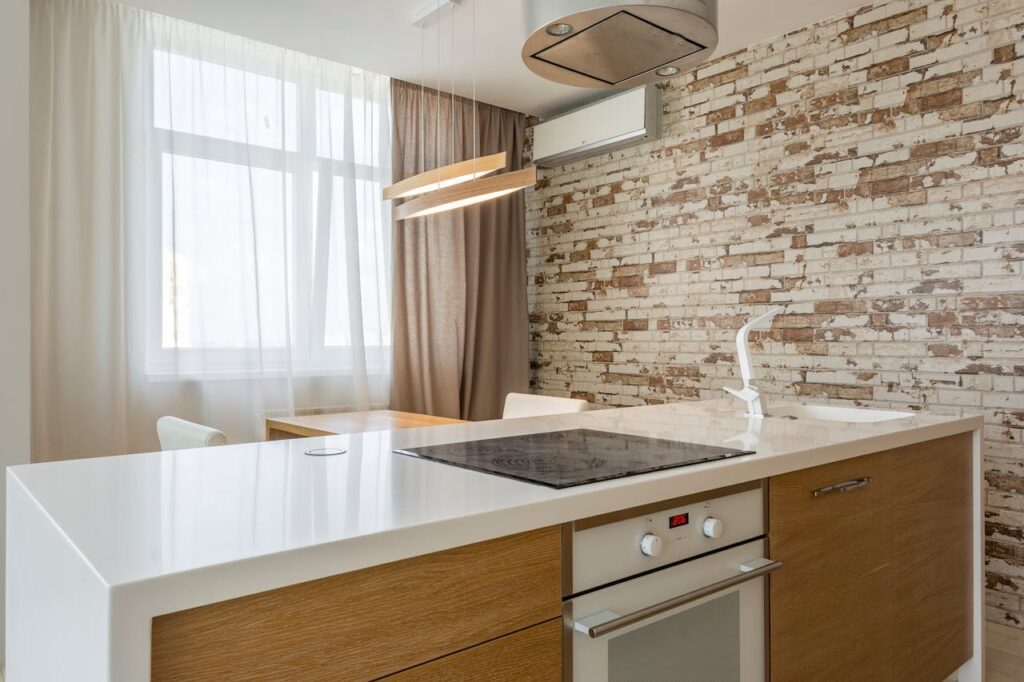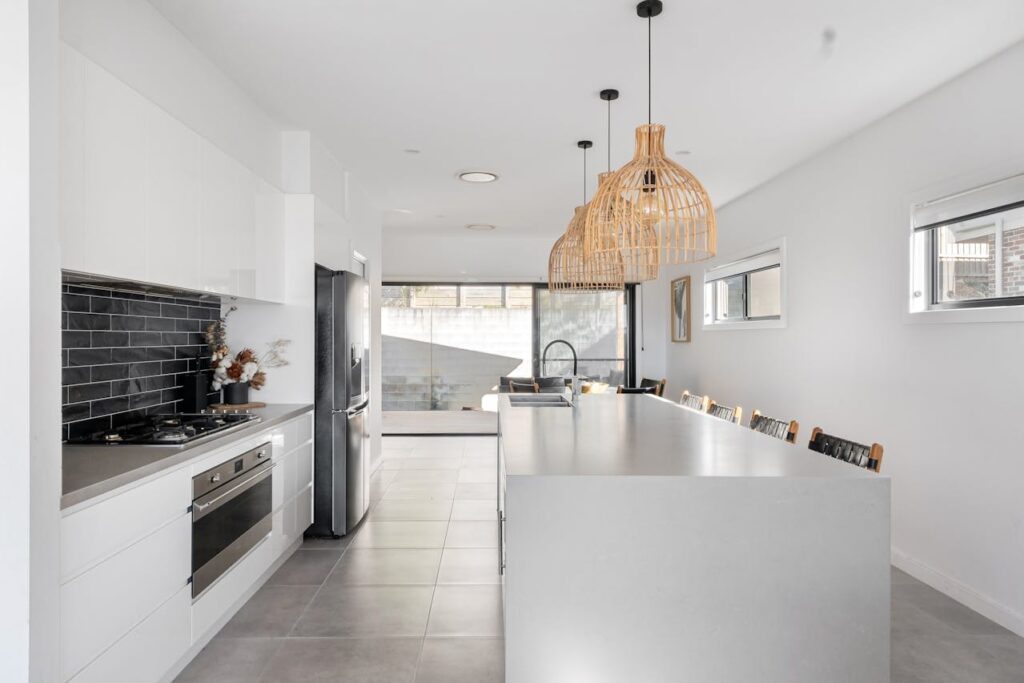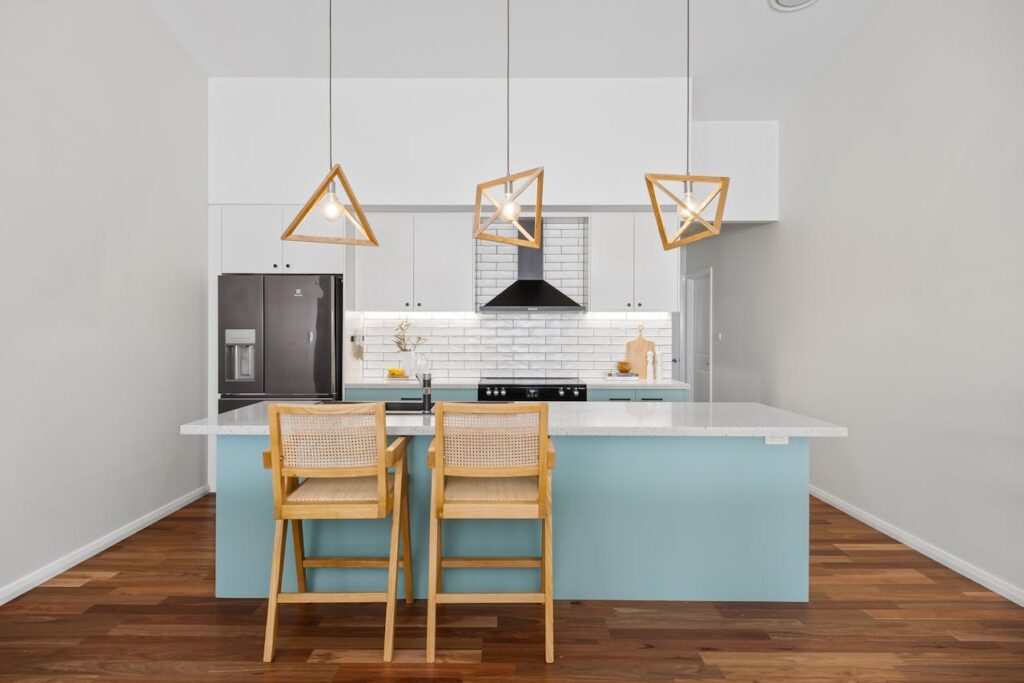When it comes to your kitchen countertop slab, durability, and regular sealing are key to prevent scratches. Imagine cooking up a storm on the stove without worrying about damaging your countertop with heat. Whether you prefer the sleek look of quartz or the classic appeal of granite, knowing if your countertop slab can handle the heat is essential for kitchen design. By understanding the heat resistance of different materials, you can make an informed choice that suits your cooking style and needs. Stay tuned as we delve into the world of kitchen countertops, explore what makes them stand up to the heat, and appreciate their natural beauty and aesthetic appeal.
Understanding Heat Resistance
Key Factors
Kitchen countertop heat resistance is influenced by material type, thickness, and heat exposure duration. Various countertop materials like quartz, granite, and marble exhibit different heat resistance capabilities. Considering heat resistance is crucial to prevent countertop damage from hot cookware or appliances.
Material Properties
Quartz countertops offer high heat resistance due to their composition of natural quartz and resin. Granite countertops are known for their durability and moderate heat resistance properties. Marble countertops have elegant aesthetics but require caution due to their lower heat resistance.
Durability Tests
Heat resistance and durability of kitchen countertops are tested using methods like the hot pan test. Countertop materials undergo tests to meet standards ensuring performance under heat exposure. Durability tests, including high heat, are essential to evaluate how well a countertop can withstand daily wear and tear.
Popular Countertop Materials
Laminate
Laminate countertops offer affordability but have limited heat resistance. Excessive heat can cause bubbling or discoloration on laminate surfaces. To protect them from high heat, use trivets or hot pads under hot cookware.
Solid Surface
Solid surface countertops boast moderate heat resistance, but they can be susceptible to damage from extreme temperatures. Avoid placing hot pans directly on the countertop material surface to prevent cracking or melting. Regularly clean with a mild soap to maintain their heat resistance.
Porcelain
Porcelain countertops excel in heat resistance due to their manufacturing process involving high temperatures and compression. They are highly resistant to both heat and scratches, making them ideal for busy kitchens. Choosing porcelain ensures durability and longevity in heat-prone areas.
Quartz
Quartz countertops stand out for their excellent heat resistance properties, thanks to the natural minerals and resins used in their production. They can withstand high temperatures without warping or melting, making them perfect for cooking enthusiasts. Quartz offers a balance of style and functionality in heat-exposed kitchen spaces.
Granite
Granite is renowned for its exceptional heat resistance, making it a popular choice for kitchen countertops. Its natural formation through intense heat and pressure gives it the ability to withstand hot pots and pans without damage. Regular sealing helps maintain granite’s heat resistance over time.
Comparing Heat Resistance
Laminate VS Solid Surface
Laminate countertops offer affordability but have lower heat resistance compared to solid surface options. Solid surface countertops, like Corian, boast better heat resistance due to their composition of acrylic and minerals. While laminate can withstand temperatures up to 150°F, solid surfaces can endure heat up to 212°F. The trade-off lies in durability, as solid surfaces are more prone to scratches than laminates.
Quartz VS Granite
Quartz countertops excel in heat resistance, capable of enduring temperatures up to 300°F without damage. In contrast, granite countertops, although durable, may suffer from thermal shock under extreme heat conditions. Quartz’s engineered nature provides consistency in heat tolerance across the entire surface, making it a top choice for kitchens. Granite’s natural variability may result in uneven heat distribution.
Porcelain In Detail
Porcelain countertops exhibit exceptional heat resistance, withstanding temperatures exceeding 500°F without warping or melting. This is attributed to the manufacturing process involving extreme heat and pressure during production. Beyond its resilience to high temperatures, porcelain offers a wide range of design options, mimicking the appearance of natural stone while being more cost-effective and easier to maintain.
Choosing The Right Material
Assessing Needs
Determining your specific requirements for heat resistance in kitchen countertops is crucial. Evaluate how much heat exposure your countertops will face daily. Consider factors like maintenance, durability, and aesthetics to make an informed decision.
When assessing your countertop needs, think about the types of cooking activities you engage in regularly. Evaluate the importance of heat resistance based on your cooking habits and lifestyle. This will help you choose a material that can withstand the heat effectively.
Consider materials that are not only heat-resistant but also easy to maintain. Factor in durability to ensure your countertop lasts long without damage. Aesthetics play a significant role too; choose a material that complements your kitchen style.
Matching Decor
Explore various options to choose heat-resistant countertops that seamlessly blend with your kitchen decor. Learn about color and design choices available in heat-resistant materials. Opt for colors and patterns that enhance the overall look of your kitchen.
When selecting countertops, consider how different materials can enhance or detract from your kitchen’s aesthetic appeal. Discover tips for choosing countertops that not only offer heat resistance but also elevate the visual appeal of your cooking space.
Matching the decor involves finding a balance between functionality and style. Explore different textures and finishes to find a countertop material that suits both your practical needs and design preferences.
Budget Considerations
Understanding how heat resistance affects the cost of kitchen countertops is essential. Heat-resistant materials may come at a higher price point due to their specialized properties. However, investing in such materials can save you money in the long run by reducing repair and replacement costs.
Explore budget-friendly options that provide adequate heat resistance without compromising on quality. Look for materials that offer a good balance between affordability and durability. Consider the long-term benefits of investing in high-quality, heat-resistant countertops for your kitchen.
When considering budget constraints, prioritize durability and performance over initial costs. Investing in a quality, heat-resistant countertop may require a higher upfront investment but can lead to savings over time through reduced maintenance and replacement expenses.
High-Performance Countertops
Advanced Options
In busy kitchens, advanced technologies have revolutionized heat-resistant countertops. New materials ensure durability and longevity. Cutting-edge features enhance heat resistance to withstand high temperatures. These high-performance options cater to modern kitchen designs, offering superior heat resistance for daily use.
Material Innovations
Stay updated on the latest advancements in heat-resistant countertop materials. Innovative manufacturing techniques have significantly improved heat resistance properties. Sustainable and eco-friendly materials now provide superior durability and resilience against heat.
Care And Maintenance
Daily Care Tips
To maintain the heat resistance of kitchen countertops, clean spills promptly using a mild soap solution. Wipe down surfaces regularly to prevent staining. Avoid harsh chemicals that can damage the protective sealant. Regular cleaning helps keep the countertop in pristine condition.
Establish daily care routines such as using cutting boards to prevent scratches and maintaining the countertop’s natural beauty. Homeowners should also avoid placing hot pans directly on the surface to prevent heat damage. Regular sealing is crucial for preserving the countertop’s durability.
Maintaining your kitchen countertop involves more than just aesthetics; it requires consistent care to ensure longevity. By following these daily care tips, you can protect your countertops from discoloration and maintain their heat resistance over time.
Preventing Heat Damage
Protect your kitchen countertops from heat damage by using trivets or pads under hot cookware. These simple measures help safeguard the surface from high temperatures and prevent potential warping or discoloration due to heat exposure. Implementing these habits can significantly extend the lifespan of your countertops.
Effective strategies for preventing heat-related damage include proactive maintenance and caution when cooking. Homeowners should be mindful of the potential impact of direct heat on their countertops and take necessary precautions to preserve their beauty and functionality. By being proactive in preventing heat damage, you can ensure that your countertops remain in optimal condition for years to come.
Understanding the significance of preventive measures is essential in maintaining the heat resistance of kitchen surfaces. By incorporating protective habits into your daily cooking routine, you can minimize the risk of damage and keep your countertops looking as good as new for longer periods.
Installation Insights
Professional VS DIY
Professionals offer expertise and ensure a precise installation, enhancing the heat resistance of countertops. Hiring experts guarantees proper sealing for heat protection.
DIY installations may lack a professional touch, risking inadequate heat resistance due to improper sealing. Challenges include inaccurate measurements and subpar sealing techniques.
Preparing For Installation
Before installation, accurate measurements are crucial for a perfect fit and optimal heat resistance. Proper surface preparation is essential to ensure the longevity of heat-resistant countertops.
Preparing for installation involves clearing out the existing countertop, ensuring a clean and level surface, and scheduling adequate time for the process.
Future Trends
Eco-Friendly Materials
When considering eco-friendly materials for your kitchen countertop, options like recycled glass surfaces provide both sustainability and heat resistance. These countertops are made from recycled glass and concrete, offering a unique and environmentally friendly choice. Another eco-conscious option is bamboo countertops, known for their durability and natural heat resistance.
Opting for green countertop materials not only benefits the environment but also enhances the aesthetics of your kitchen. Recycled paper composite countertops are another eco-friendly choice that combines durability with a distinctive look. These materials are resistant to heat, making them a practical and sustainable option for your kitchen.
- Recycled glass surfaces
- Bamboo countertops
- Recycled paper composite countertops
Technology Integration
The integration of technology has brought significant advancements in creating heat-resistant kitchen countertops. Smart features such as induction cooktops embedded directly into the countertop surface allow for efficient cooking while maintaining heat resistance. These integrated technologies not only enhance functionality but also elevate the overall design of the kitchen.
Innovative trends in technology integration include countertops with built-in wireless charging stations for smartphones and tablets. Such futuristic concepts cater to the modern lifestyle by seamlessly blending convenience with style. With technology playing a pivotal role in kitchen design, these advancements offer a glimpse into the future of heat-resistant surfaces.
- Induction cooktops embedded in countertops
- Countertops with wireless charging stations
Closing Thoughts
Now that you understand the heat resistance levels of different countertop materials, you can confidently choose the best option for your kitchen. Consider factors like durability, maintenance, and style to ensure your countertop meets your needs. Remember, proper care and maintenance will extend the lifespan of your countertop, keeping it looking great for years to come.
As you plan your kitchen renovation or upgrade, keep an eye on emerging trends in countertop materials and technologies. Stay informed about innovations that can enhance the functionality and aesthetics of your space. By staying proactive and informed, you can make the best decisions for your kitchen countertops. Your kitchen is the heart of your home; make sure it reflects your style and meets your practical needs.
Frequently Asked Questions
1. Is Heat Resistance The Same For All Countertop Materials?
Heat resistance varies among different countertop materials. Natural stones like granite and quartzite are highly heat-resistant, while laminate and wood countertops are more susceptible to heat damage.
2. What Are The Benefits Of Choosing A High-Performance Countertop In Terms Of Heat Resistance?
High-performance countertops, such as engineered quartz or porcelain, offer excellent heat resistance properties. They can withstand high temperatures without getting damaged, making them ideal for busy kitchens where cooking activities generate significant heat.
3. How Can I Maintain The Heat Resistance Of My Kitchen Countertop?
To maintain the heat resistance of your kitchen countertop, avoid placing hot pans directly on the surface. Always use trivets or hot pads to protect the countertop from extreme heat. Regularly clean and seal your countertop as recommended by the manufacturer to preserve its heat-resistant qualities.
4. Are There Any Future Trends In Countertop Materials That Enhance Heat Resistance?
Manufacturers are constantly developing new materials with enhanced heat-resistant properties. Look out for innovations like sintered stone or ultra-compact surfaces that offer superior heat resistance along with durability and aesthetics.
5. Can Improper Installation Affect The Heat Resistance Of A Countertop?
Improper installation can compromise the heat resistance of a countertop. Gaps or uneven surfaces due to poor installation can lead to thermal shock or damage when exposed to high temperatures. Ensure professional installation to maximize the heat-resistant capabilities of your chosen countertop material.
Revitalize Your Kitchen With Countertop Solutions By Red White & Blue Construction!
Considering a kitchen countertop upgrade as part of your home renovation in Lafayette, CA? Red White & Blue Construction is your premier choice for expert kitchen countertop services! Specializing in the meticulous planning and execution of comprehensive kitchen countertop enhancements, we tailor our strategies to meet your specific needs and visions. Known for our expertise in kitchen countertops, we are dedicated to transforming your kitchen into a more elegant, functional, and modern culinary space, with every aspect carefully planned and executed to exceed your expectations. Our esteemed reputation throughout the Bay Area stands as a testament to our commitment to precision, quality, and the high standards we uphold in every project phase.
At Red White & Blue Construction, our goal is to do more than just update your surfaces; we aim to enhance your entire home renovation experience. With our detailed planning, transparent pricing, and unparalleled customer service, choosing us for your kitchen countertop upgrade means embarking on a smooth, efficient renovation journey. Opt for Red White & Blue Construction for all your kitchen countertop needs and take the first step towards a more luxurious and functional kitchen. Contact us today to get started!
Disclaimer
The materials available on this website are for informational and entertainment purposes only and not to provide advice. You should obtain advice concerning any particular issue or problem from a professional. You should not act or refrain from acting based on any content included in this site without seeking legal or other professional advice. The information presented on this website may reflect only some of the current building developments. No action should be taken in reliance on the information on this website. We disclaim all liability concerning actions taken or not taken based on any or all of the contents of this site to the fullest extent permitted by law.





